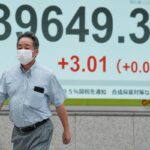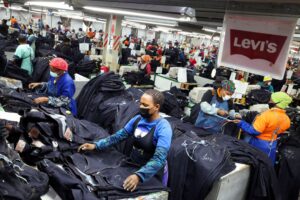
While Paul Dabbar and DJ Nordquist are entitled to their opinions (“Ford’s pact with Chinese EV battery maker is a sucker punch to American taxpayers”), they need to be based on facts. Unfortunately, most of what they assert about the new electric-vehicle battery factory Ford F, -0.76% plans to build in the United States is wrong.
Nordquist and Dabbar write that the Michigan plant will be a joint venture with Contemporary Amperex Technology Co. Ltd. 300750, +1.52%, CATL will receive U.S. tax dollars, and CATL will run the plant. None of that is true. CATL isn’t investing anything and will have no ownership or control of the plant. CATL will get only a licensing fee from Ford for the right to use battery-chemistry technology that’s owned by and only available from CATL.
The authors suggest that the new plant also is part of China’s Belt and Road infrastructure program. That is not true. China is not involved in this project. However, Ford’s $3.5 billion investment will help fulfill goals of the U.S. Inflation Reduction Act, including to restore domestic innovation and manufacturing and reduce carbon emissions.
They also write that using CATL’s leading technology will harm the U.S. EV battery industry. That isn’t true, either. The world’s 10-largest battery manufacturers are headquartered in Asia, and U.S. automakers rely entirely on imports for lithium iron phosphate, or LFP, EV batteries. This Ford plant will be a big step in expanding the U.S. EV battery industry and, in the process, create 2,500 good-paying jobs in our company’s home state of Michigan.
“ What Ford is doing by developing this LFP battery plant in Michigan is better for our customers, for our company, and for the U.S. ”
Here’s what is true about the factory: A Ford subsidiary alone will build, own and operate the plant. It will hire and employ people who will produce EV batteries there, incorporating Ford’s own layer of innovation. Those batteries will be installed in Ford vehicles manufactured at other Ford factories, including in the U.S., where we provide work for more hourly employees than any automaker. As a result, high-quality, high-performing EVs will be more affordable to more Ford customers.
Of course, we could have stuck with the status quo and, like Tesla TSLA, -2.01%, Honda Motor 7267, +0.92% and many other auto companies, relied exclusively on importing these batteries from China. Instead, what Ford is doing by developing this LFP battery plant in Michigan is better for our customers, for our company, and for the U.S.
Christopher Smith is chief government affairs officer at Ford Motor Co.
Read the commentary article: Ford’s pact with Chinese EV battery maker is a sucker punch to American taxpayers









